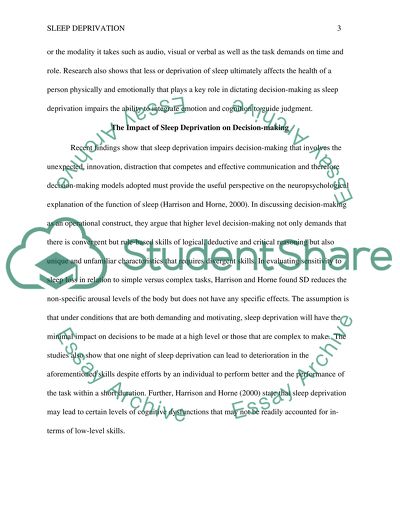Cite this document
(“The effects of sleep deprivation on decision making Term Paper”, n.d.)
Retrieved from https://studentshare.org/psychology/1487129-the-effects-of-sleep-deprivation-on-decision
Retrieved from https://studentshare.org/psychology/1487129-the-effects-of-sleep-deprivation-on-decision
(The Effects of Sleep Deprivation on Decision Making Term Paper)
https://studentshare.org/psychology/1487129-the-effects-of-sleep-deprivation-on-decision.
https://studentshare.org/psychology/1487129-the-effects-of-sleep-deprivation-on-decision.
“The Effects of Sleep Deprivation on Decision Making Term Paper”, n.d. https://studentshare.org/psychology/1487129-the-effects-of-sleep-deprivation-on-decision.


